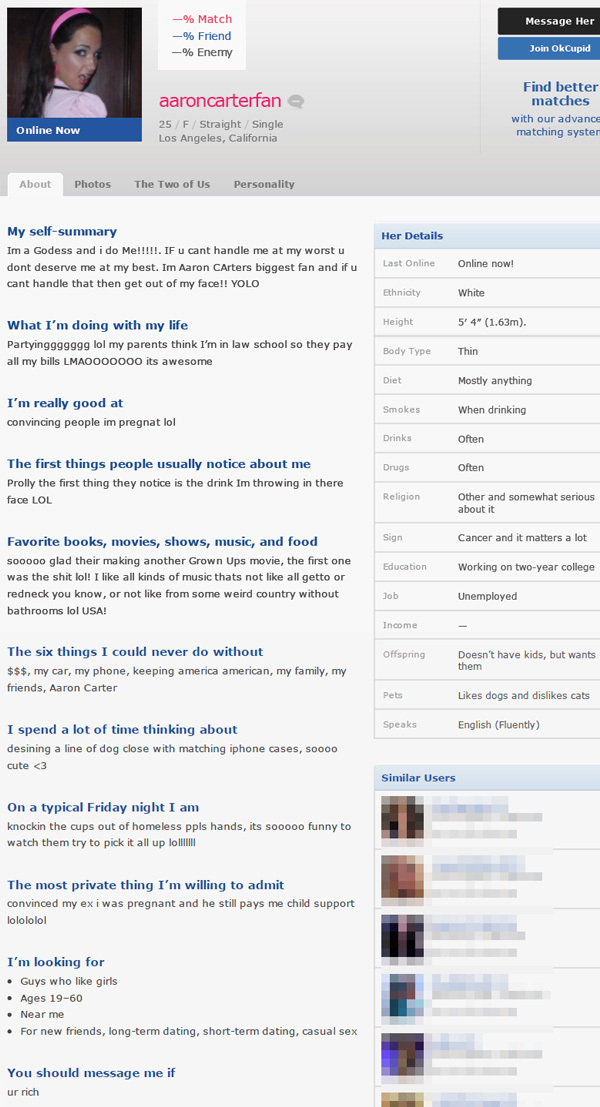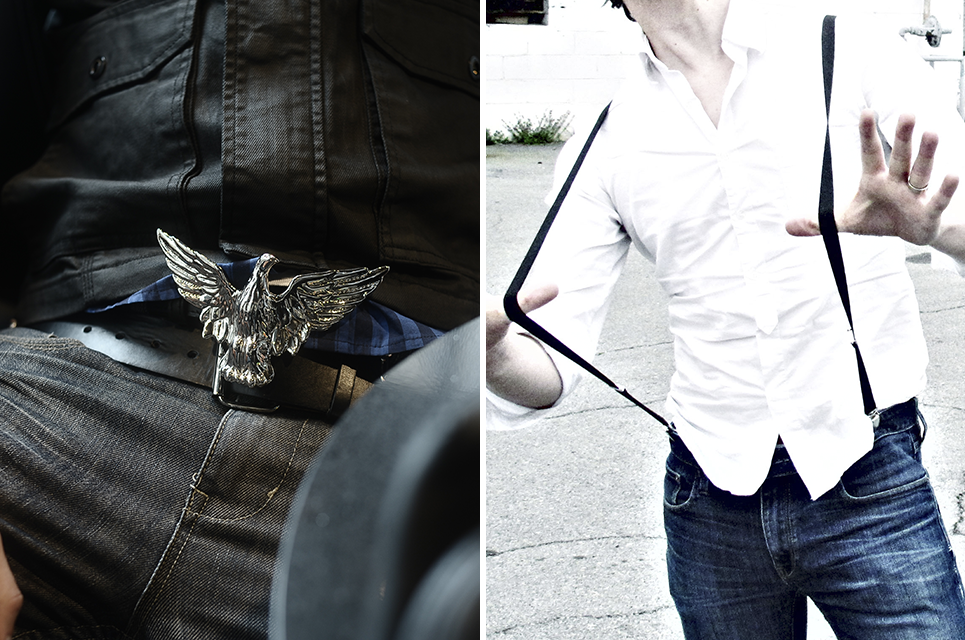Watch Freakonomics Online Facebook
Nick Douglas. Staff Writer, Lifehacker Nick has been writing online for 11 years at sites like Urlesque, Gawker, the Daily Dot, and Slacktory. Freakonomics Radio is an award-winning weekly podcast (subscribe here!) with 8 million downloads per month. It can also be heard on public radio stations across the. Our latest Freakonomics Radio episode is called “How to Get More Grit in Your Life (Rebroadcast).” (You can subscribe to the podcast at iTunes or elsewhere, get.

Video News - CNNChat with us in Facebook Messenger. Find out what's happening in the world as it unfolds.
Watch "NYPD To File Rape Case Against Weinstein", a CBSN video on CBSNews.com. View more CBSN videos and watch CBSN, a live news stream featuring original CBS News. Over the years there have been many documentary titles released about rap superstar Tupac Shakur, but what makes Tupac Resurrection unique is it’s the only movie to. My mom loves me. But she also “likes” me—a lot. And apparently, when she does so on Facebook, it’s hurting my chances of becoming the next viral sensation. Watch Freakonomics online. Get Unlimited Access to Hulu’s Library; Choose Limited or No Commercials. Inside Job reveals the causes of 2008 global economic crisis, why it all happened and the devastating effects it had on the American people. Surely a real estate agent would want to get you the very best price for your home. After all, they earn commission. The more they sell it for, the more they make.
Freakonomics Radio Archive - Freakonomics Freakonomics. Freakonomics Radio is an award- winning weekly podcast (subscribe here!) with 8 million downloads per month. It can also be heard on public radio stations across the country, on Sirius.
XM, on several major airlines, and elsewhere. Host Stephen J. Dubner has surprising conversations that explore the riddles of everyday life and the weird wrinkles of human nature — from cheating and crime to parenting and sports. Dubner talks with Nobel laureates and provocateurs, social scientists and entrepreneurs — and his Freakonomics co- author Steve Levitt. Freakonomics Radio is produced by Dubner Productions and WNYC Studios.
EPISODE DATELENGTH3. Thinking Is Expensive. Who’s Supposed to Pay for It? Corporations and rich people donate billions to their favorite think tanks and foundations. Should we be grateful for their generosity — or suspicious of their motives?
How to Launch a Behavior- Change Revolution. Academic studies are nice, and so are Nobel Prizes.
But to truly prove the value of a new idea, you have to unleash it to the masses. That’s what a dream team of social scientists is doing — and we sat in as they drew up their game plan. The Demonization of Gluten. Celiac disease is thought to affect roughly one percent of the population. The good news: it can be treated by quitting gluten. The bad news: many celiac patients haven’t been diagnosed.

The weird news: millions of people without celiac disease have quit gluten – which may be a big mistake. What Are the Secrets of the German Economy — and Should We Steal Them? Smart government policies, good industrial relations, and high- end products have helped German manufacturing beat back the threats of globalization. REBROADCAST: Time to Take Back the Toilet. Public bathrooms are noisy, poorly designed, and often nonexistent. What to do? 1. 0/5/1.
Why Larry Summers Is the Economist Everyone Hates to Love. He’s been U. S. Treasury Secretary, a chief economist for the Obama White House and the World Bank, and president of Harvard. He’s one of the most brilliant economists of his generation (and perhaps the most irascible). And he thinks the Trump Administration is wrong on just about everything.
BONUS EPISODE: Why Learn Esperanto? A language invented in the 1. So why does a group of Esperantists from around the world gather once a year to celebrate their bond? What Would Be the Best Universal Language?
Earth 2. 0 Series)We explore votes for English, Indonesian, and … Esperanto! The search for a common language goes back millennia, but so much still gets lost in translation. Will technology finally solve that? Why Don’t We All Speak the Same Language? Earth 2. 0 Series)There are 7,0. Earth. What are the costs — and benefits — of our modern- day Tower of Babel?
How Much Brain Damage Do I Have?”John Urschel was the only player in the N. F. L. simultaneously getting a math Ph. D. at M. I. T. But after a new study came out linking football to brain damage, he abruptly retired. Here’s the inside story — and a look at how we make decisions in the face of risk versus uncertainty.
REBROADCAST: Bad Medicine, Part 3: Death by Diagnosis. By some estimates, medical error is the third- leading cause of death in the U. S. How can that be? And what’s to be done?
Our third and final episode in this series offers some encouraging answers. REBROADCAST: Bad Medicine, Part 2: (Drug) Trials and Tribulations. How do so many ineffective and even dangerous drugs make it to market? One reason is that clinical trials are often run on “dream patients” who aren’t representative of a larger population. On the other hand, sometimes the only thing worse than being excluded from a drug trial is being included. REBROADCAST: Bad Medicine, Part 1: The Story of 9.
We tend to think of medicine as a science, but for most of human history it has been scientific- ish at best. In the first episode of a three- part series, we look at the grotesque mistakes produced by centuries of trial- and- error, and ask whether the new era of evidence- based medicine is the solution. REBROADCAST: What Are You Waiting For? Standing in line represents a particularly sloppy — and frustrating — way for supply and demand to meet. Why haven’t we found a better way to get what we want? Is it possible that we secretly enjoy waiting in line?
And might it even be (gulp) good for us? Everything You Always Wanted to Know About Money (But Were Afraid to Ask)The bad news: roughly 7. Americans are financially illiterate.
The good news: all the important stuff can fit on one index card. Here’s how to become your own financial superhero. The Stupidest Thing You Can Do With Your Money.
It’s hard enough to save for a house, tuition, or retirement. So why are we willing to pay big fees for subpar investment returns? Enter the low- cost index fund. The revolution will not be monetized. Watch T2 Trainspotting Online (2017). These Shoes Are Killing Me! The human foot is an evolutionary masterpiece, far more functional than we give it credit for.
So why do we encase it in “a coffin” (as one foot scholar calls it) that stymies so much of its ability — and may create more problems than it solves? When Helping Hurts. Good intentions are nice, but with so many resources poured into social programs, wouldn’t it be even nicer to know what actually works? The Fracking Boom, a Baby Boom, and the Retreat From Marriage.
Over 4. 0 percent of U. S. births are to unmarried mothers, and the numbers are especially high among the less- educated. Why? One argument is that the decline in good manufacturing jobs led to a decline in “marriageable” men.
Surely the fracking boom reversed that trend, right? REBROADCAST: The Harvard President Will See You Now. How a pain- in- the- neck girl from rural Virginia came to run the most powerful university in the world. BONUS EPISODE: Why Hate the Koch Brothers? Part 2)Charles Koch, the mega- billionaire CEO of Koch Industries and half of the infamous political machine, sees himself as a classical liberal. So why do most Democrats hate him so much?
In a rare series of interviews, he explains his political awakening, his management philosophy and why he supports legislation that goes against his self- interest. Why Hate the Koch Brothers? Part 1)Charles Koch, the mega- billionaire CEO of Koch Industries and half of the infamous political machine, sees himself as a classical liberal.
So why do most Democrats hate him so much?